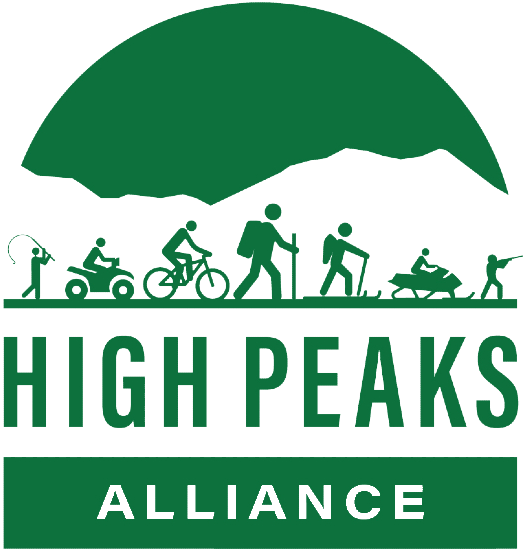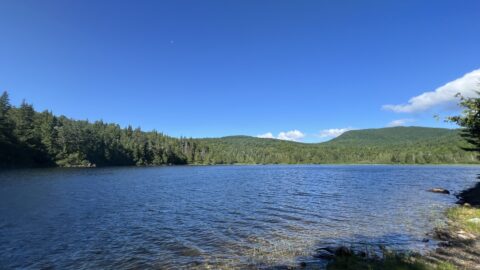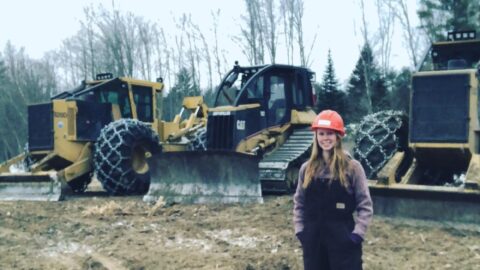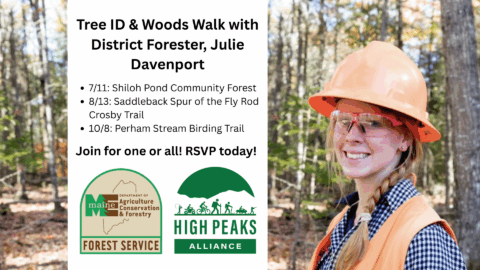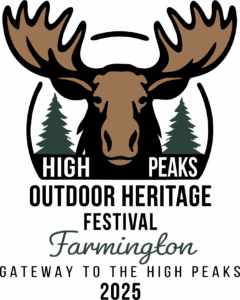
Let me start by saying that it is an unbelievable honor to serve as the first executive director of the High Peaks Alliance. Growing up exploring the woods and waters of this region taught me so much about life and the outdoors, and it gave me a deep appreciation of everything the area has to offer.
There’s a good reason explorers have been drawn here for hundreds of years. The beauty and abundance are simply unmatched. Ten of the 14 highest peaks in Maine anchor the region’s thousands of acres of forest and water.
Unfortunately, things change. I remember standing at the bus stop a few hundred feet from Dirigo Dowel in New Portland on the last day the mill operated. In my adolescent eyes, I could see the heartbreak of a town saying goodbye to its last manufacturing job.
Other things changed as well. After leaving the state for a few years, I decided there was no place like Maine to raise a family. My soon-to-be wife and I clawed our way home, leaving well-paying jobs in Maryland for the safety and beauty of Maine.
The day we were married, we took our entire wedding party, many of them first-time visitors to Maine, to the Lexington Ledges. The Ledges, as the locals call it, had been the secret swimming hole for our entire youth. Down a gravel road one mile from town, you could swim under waterfalls and jump off the Ledges. So, we loaded up our friends and family to go celebrate in High Peaks fashion by jumping in the clear waters of Sandy Stream. But a mile before The Ledges, we hit a gate. I never imagined this local treasure would ever be closed off. I swam there so many times, it felt public. My wife and I were crushed, and unfortunately, this is the lasting impression of the area many of our guests were left with.
All of us love to get outside and enjoy the outdoors in our own way, whether motorized or human-powered, and our love of the area connects us all. We all love to stare out at expanses of wilderness to forget daily problems. We may experience this landscape in different ways, but we have always respected each other’s right to do so. That is what makes the High Peaks special, it is a place lost in time. Many of us don’t mind being disconnected from the outside world, and in fact, many of us prefer it and want to make sure that this wilderness should always exist.
Since the 1800s, three activities have sustained our communities: recreation, forestry, and farming. They are commercial and personal. The realization that our livelihood and soul are connected to nature is what creates so many unlikely champions for this place. We are not anti-progress, but we firmly believe that the land should be taken care of because it will continue to provide for us physically and spiritually, forever.
For the reasons listed above, I think we must protect access to this land so that tomorrow’s generation has the same freedom and opportunities we have come to take for granted.
Since I grew up in the shadow of these mountains, things have changed. Gated roads, posted signs closing thousands of acres of land, trails closed, land subdivided and sold off. With globalization and shifting markets, the High Peaks have lost their sense of self, but the love of this landscape remains in our hearts every time we look up to the snowy peaks shining in the distance. It remains in the roar of the river during spring melt. It remains in the rise of a trout or the call of the loon.

What will remain if we do not act now?
What will remain if we slowly let the integrity of this land slip from our fingers, because we were not brave enough to say we could do something about it?
We ask you to join us if you want to work with us to keep the mountains, water, and forest of the High Peaks Region wild and open for all of us to explore.
